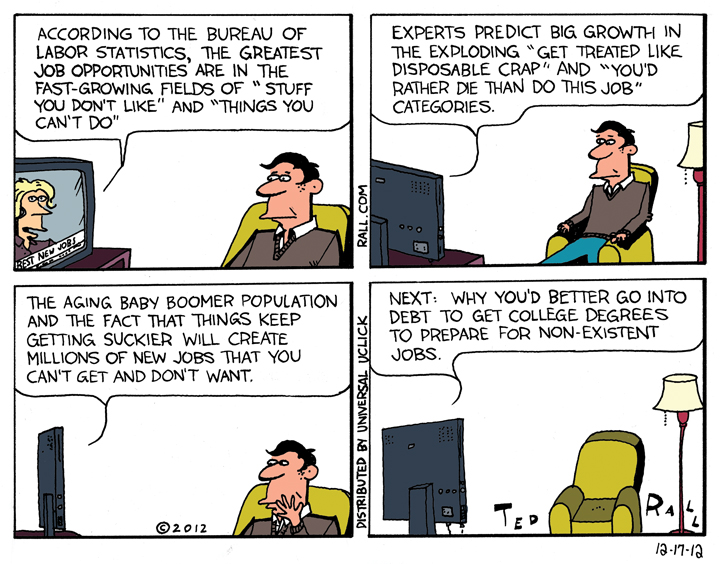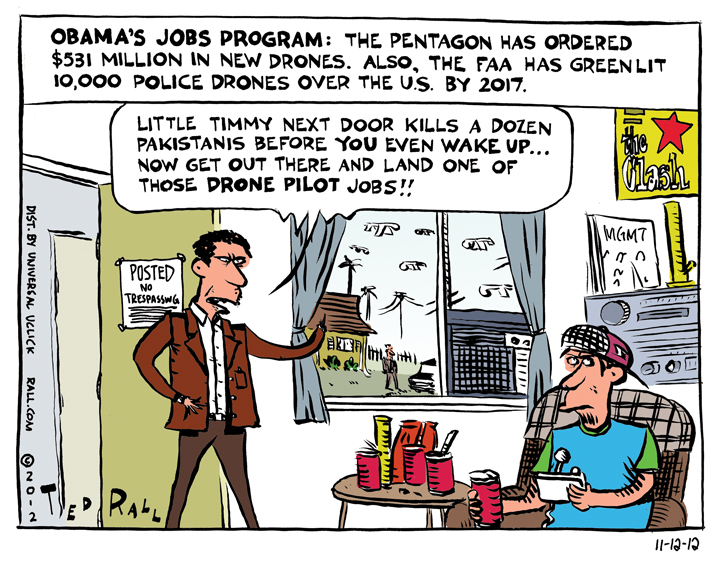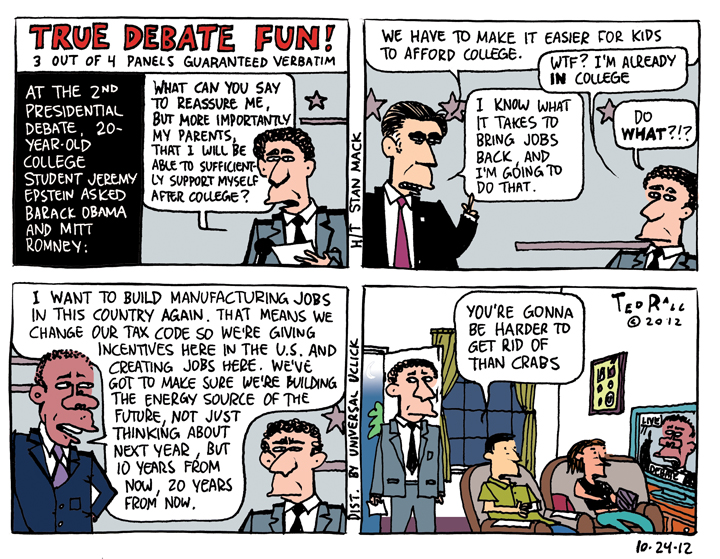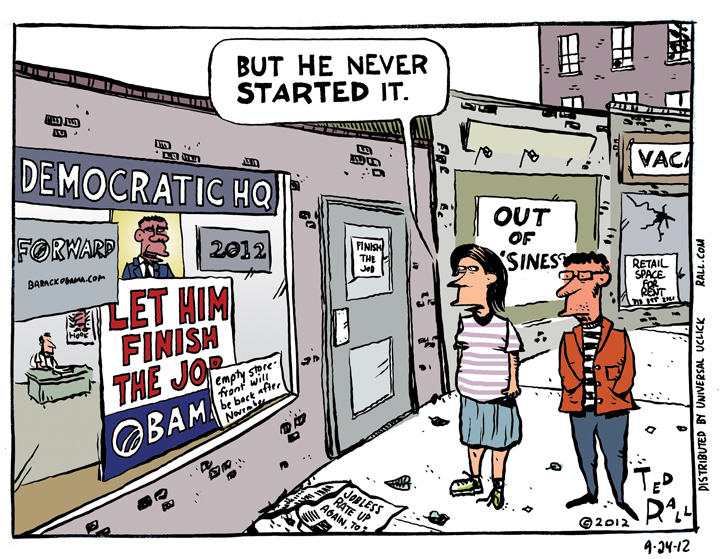To Be Young, Technodouchey and Shilly at SXSW
It’s not like I didn’t know what I was getting into.
This was my second year at South by Southwest, the Austin music festival that has morphed into a trilateral Comic Con of the tattered remnants of the music industry, the on-the-ropes independent film sector, and a New Third Thing, the tantalizingly monetizable-for-a-few culturo-fiscal tsunami that left the first two that way, which SXSW hath dubbed Interactive.
Which is, of course, the Internet. Or more exactly, the hapless wretches who want to make money from it because, this being 2013, what else are they going to do – build real stuff and sell it? They seek to profit directly, by coming up with an awesome app like Foursquare which, as every article about this topic is required by law to mention, launched at SXSW in 2009 (and which said articles are never allowed to say, is pretty boring and useless and lame and, anyway, isn’t it kind of sad to have to point back four years to find a Big SXSW Launch?). Either that, or indirectly – by sucking dry a gullible VC (venture capitalist).
In case you’re wondering what goes on SXSW and why you should care, here’s what (why comes later; feel free to skip ahead, I would if I didn’t have to write this):
It’s a bunch of incredibly douchey – you think you know douche? you think you’ve met douches? oh, no, not like these douches you don’t – 25-to-37-year-old wannabentrepreneurs trying to market Webby things, 99% of which are apps for smartphones. And 99% of those 99% of those apps are redundant.
Redundant as in: “You can find restaurants in your area and review them. You can talk to other patrons about them in our online community.”
“Like Yelp?”
“Yeah, well, yes, but…”
“Like Yelp?”
Sad confused face.
I told you they were douches.
Speaking of which:
So during SXSW 2012 I wandered down to the lobby of my hotel to get coffee. Some douches were ambling zombie-aimlessly around, heads cocked in the familiar 20°-forward-head-tilt-toward-iPhone position. Other douches were clustered on the floor, deeply engaged in a random hackathon that accomplished little more than stressing the Hilton’s already technorati-overburned wi-fi network. But that still left other douches to notice that I wasn’t wearing shoes.
“Dude,” a tall male douche, about 32 years old, smiled at me. And pointed at my feet.
“What?” I asked, grouchily. Which was appropriate, considering that he was standing between me and the coffee line. Which was long. Shilling redundant apps requires caffeine as well as gall.
“No shoes,” he replied. “What are you promoting?” He actually seemed interested in my answer to his question.
Another douche, apparently the first douche’s comrade, joined us. “Hey, that’s great!” the second douche chimed in. “Are you repping a foot app? A shoe app? What is it? I gotta know! Hey guys” – he motioned toward a small douche-flock – “check it out!”
They were visibly, crushed-like-kids-who-got-lame-presents-on-Christmas-morn disappointed by my explanation, which was boring and simple: I didn’t feel like putting on shoes since I was just going back upstairs to my room. They thought I was lying.
“No one just doesn’t wear shoes,” the first douche accused. “You are promoting something.” Because, you know, the way you promote a product is by refusing to admit it.
To paraphrase Bruce Springsteen and Dave Edmunds, from big dumb things small dumb things one day come. So what came out of tens of thousands of douches dropping millions of dollars into Austin’s tourism industry?
“The breakout star of [the 2012] SXSW was Highlight, a location-aware app that alerts you when people you know are nearby, and attempts to introduce you to people you might want to know,” the Austin Business Journal reported. “Highlight dominated the buzz at the conference and was crowned the winner early on. However, it struggled to expand afterward because it was a battery hog, and it didn’t work as well outside of SXSW’s target-rich environment, where everyone was using it.” Which is why you’ve never heard of it.
So anyway, this year was more of the same. It was depressing and maddening. Except, without anything as thrilling as Highlight. It was also enlightening. Because SXSW is a metaphor for what’s going on in the American economy.
Like most U.S. businesses, SXSW attendees wanted to sell stuff. The problem was, no one wanted to buy, or hire, or invest.
So no one was selling or getting hired or invested in.
If the balance in Austin at SXSW and in the U.S. (and for that matter internationally) were less extreme – if, in Marxist terms, the oversupply of production merely exceeded rather than dwarfed consumer demand – you’d merely have downward pressure on wages and prices. Which, in fact, we’ve seen since the end of the Vietnam War. And isn’t good.
As things stand, the demand side – companies that want to hire people, which increases the number of goods and services consumers want to buy – is virtually nonexistent. And that’s catastrophic. The U.S. economy added 177,000 jobs in January, 237,000 in February, and 158,000 in March. Moody’s Analytics chief economist Mark Zandi estimates that overall growth is running at about 175,000 a month. Since the U.S. needs to add 180,000 jobs per month just to keep up with population growth, the U.S. in “recovery” is losing 5,000 jobs a month. “If that’s the case, underlying job growth is not changed appreciably,” Zandi says dryly.
Sassy ex-Reagan budget chief David Stockman – say what you will about his blame-the-Fed politics, he’s the most thrilling economist-writer ever – says America is doomed because of failed government intervention. “The United States is broke — fiscally, morally, intellectually — and the Fed has incited a global currency war (Japan just signed up, the Brazilians and Chinese are angry, and the German-dominated euro zone is crumbling) that will soon overwhelm it. When the latest [Wall Street] bubble pops, there will be nothing to stop the collapse.”
Stockman is probably wrong about the why – more old-fashioned socialist state control would have avoided or at least mitigated this mess by redistributing wealth, thus stimulating consumer demand – but right about the what. When you’ve got a marketplace full of would-be sellers but no one who wants to buy, you’ve got no market at all.
All that’s left is a bunch of douchebags looking at your feet.
(Ted Rall’s website is tedrall.com. His book “After We Kill You, We Will Welcome You Back As Honored Guests: Unembedded in Afghanistan” will be released in November by Farrar, Straus & Giroux.)
COPYRIGHT 2013 TED RALL





